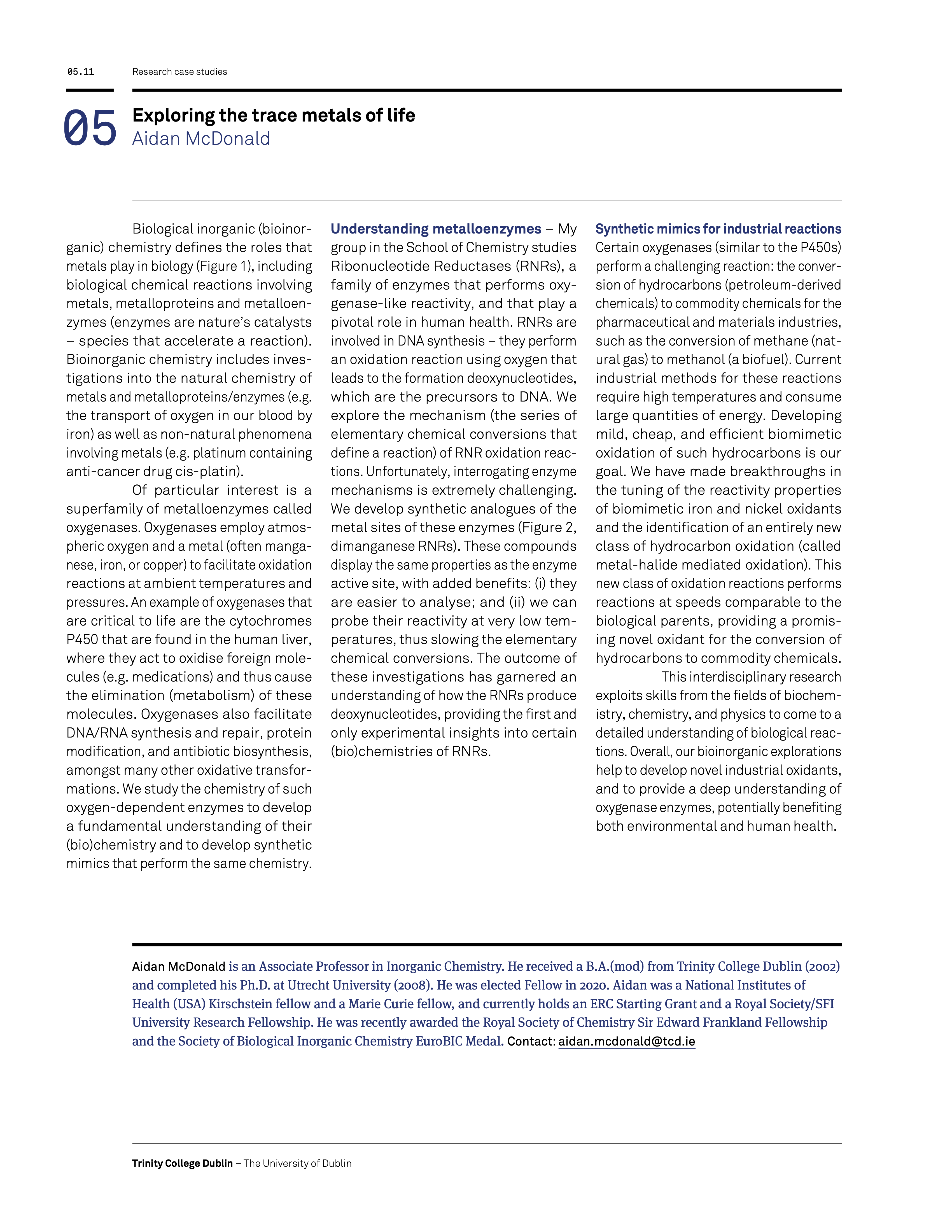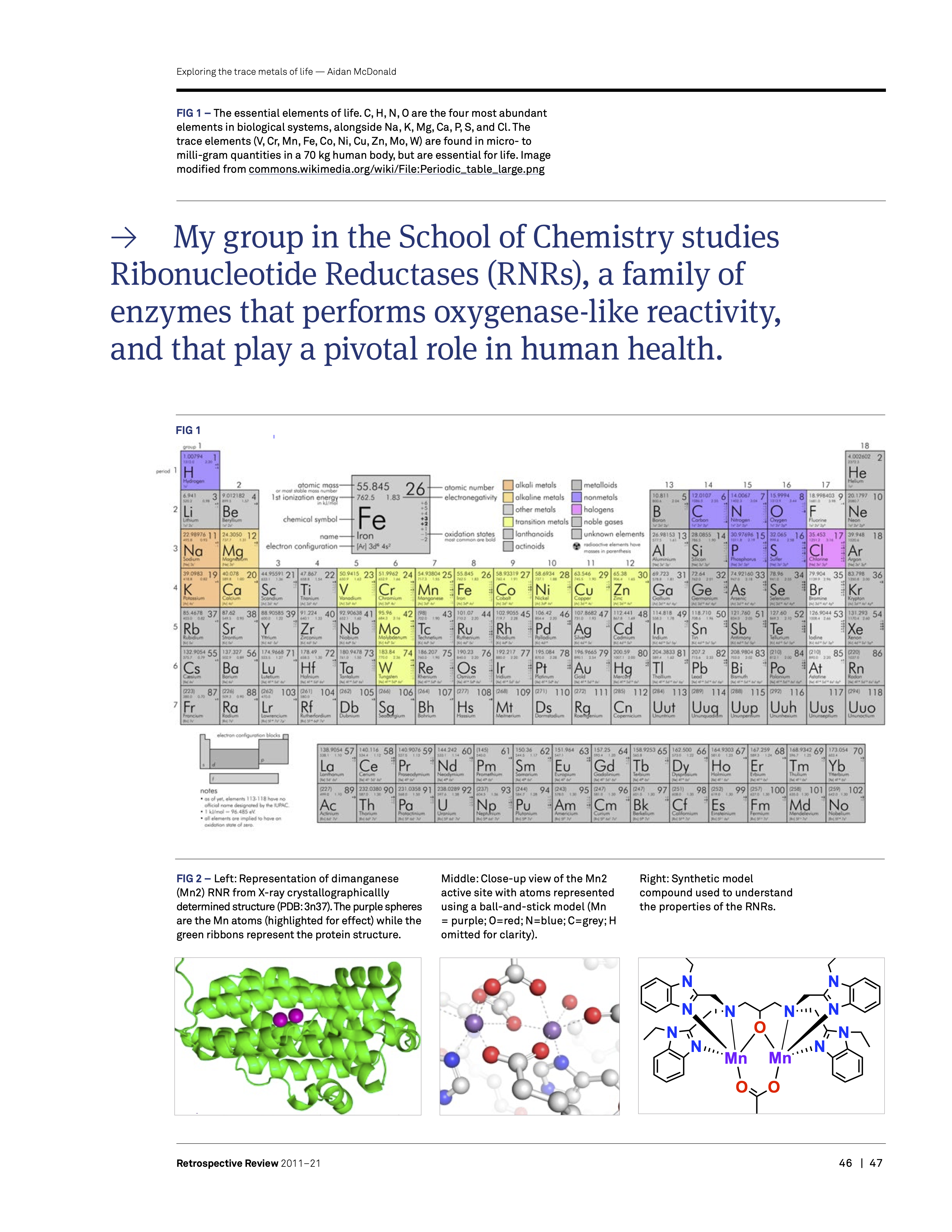Research in the McDonald group involves the synthesis of compounds that mimic the roles metals play in biology. Our goal is to take inspiration from biology to develop synthetic catalysts that replicate and/or display enhanced catalytic reactivity as well as gaining a deep understanding of biochemical reactions.
|
High-Valent Oxidants: The mild, cheap, and selective activation of hydrocarbons (for use in the pharmaceutical and agriculture industries) is a grand chemical challenge due to the strength of the C–H bond. We develop methods for bioinspired metal-mediated oxidative activation of C–H bonds in hydrocarbon substrates. We have identified that tuning of the reactivity of high-valent oxidants can be achieved by simple ligand exchange at high-valent oxidants. We are exploring a new class of hydrocarbon oxidation reaction, high-valent metal-halide C–H hydrogen atom transfer activation, which we believe will achieve facile C–H activation under ambient conditions. The main objective of this project is to prepare biomimetic metal-halides that are capable of activation and halogenation of the strongest of C–H bonds. |
|
Understanding Natural Photosynthesis: Understanding the oxidative processes involved in solar energy capture in photosystem II (PSII) remains a great modern challenge. Nature has evolved to perform these processes remarkably efficiently through the capture of solar energy, the splitting of water, and eventually the generation of chemical fuels (O2 and carbohydrate) using PSII to split water. Our limited understanding of the active oxidant in PSII (called P680+) and the sluggishness of synthetic water oxidation are seen as bottlenecks to the development of synthetic solar water-splitting technologies. Our objective is to cultivate a fundamental understanding of the most potent oxidant in biology (P680+). Specifically, we prepare and characterise a family of synthetic mono- and dimeric P680+ mimics and we investigate the factors that control the redox potential of these mimics to gain a thorough understanding of P680+. From our understanding of highly oxidising P680+ mimics, to develop a corresponding family of Mn, Fe, Co, Ni, and Cu catalysts capable of saturated hydrocarbon oxidation. |


Our research is funded by:
Research Ireland
Science Foundation Ireland
The Irish Research Council
SFI research centre BIORBIC
Useful research LINKS: Useful resources for group members and those pursuing research in bioinspired inorganic chemistry.
Funding opportunities: If you are interested in applying for external funding for a Ph.D. or PostDoc position in our group from the funding agencies below (or elsewhere) please contact Aidan.
Postgraduate: Trinity Awards |
Postdoctorate: Irish Research Council |

